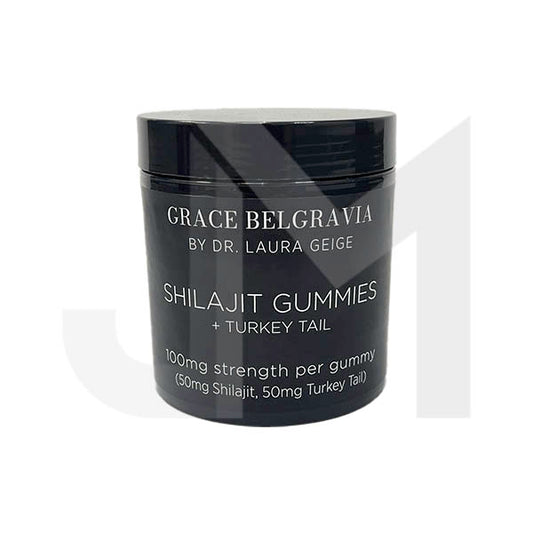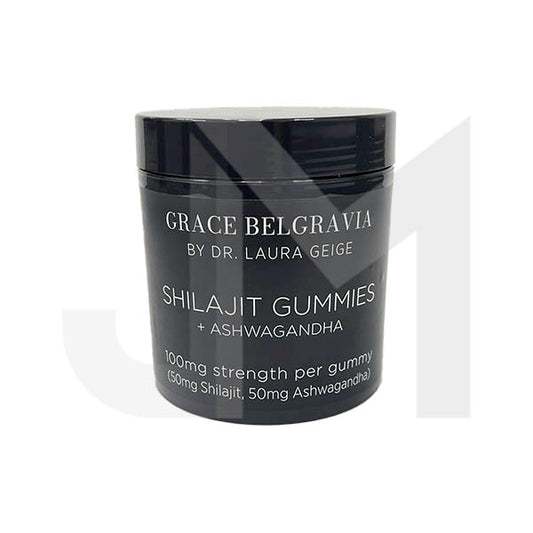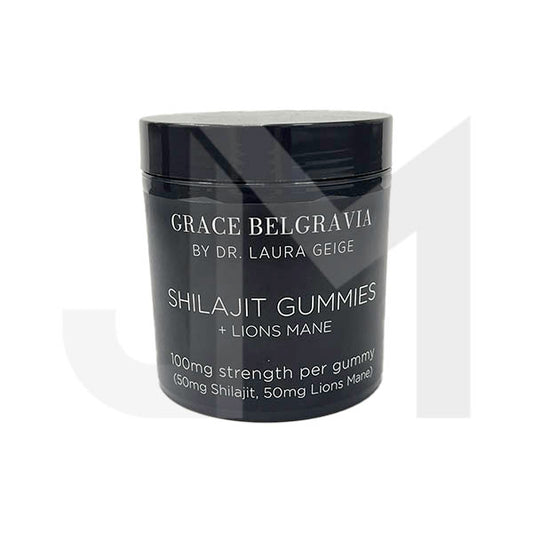-

Hemp 101 Virgin Cold Pressed Hemp Seed Oil 500ml
Hemp 101 Virgin Cold-Pressed Hemp Seed Oil (500ml) is a premium, multi-purpose superfood and skin...Hemp 101 Virgin Cold Pressed Hemp Seed Oil 500ml
Hemp 101 Virgin Cold-Pressed Hemp Seed Oil (500ml) is a premium, multi-purpose superfood and skin...Login to view price -

Hemp 101 Virgin Cold Pressed Hemp Seed Oil 250ml
Hemp 101 Cold-Pressed Hemp Seed Oil (250ml) is a premium, raw superfood and skincare essential, m...Hemp 101 Virgin Cold Pressed Hemp Seed Oil 250ml
Hemp 101 Cold-Pressed Hemp Seed Oil (250ml) is a premium, raw superfood and skincare essential, m...Login to view price -

Hemp 101 Organic Homemade Natural Zingy Hemp & Zesty Lemongrass Soap 100g
Elevate your daily shower into a revitalizing ritual with Organic Homemade Hemp & Lemongrass ...Hemp 101 Organic Homemade Natural Zingy Hemp & Zesty Lemongrass Soap 100g
Elevate your daily shower into a revitalizing ritual with Organic Homemade Hemp & Lemongrass ...Login to view price -

5CBD by British Cannabis 500mg CBD Full Plant Extract Super Lemon Haze 10ml
Novel Food application number: RP349 CBD by British Cannabis 500mg 5CBD Super Lemon Haze Full Pla...5CBD by British Cannabis 500mg CBD Full Plant Extract Super Lemon Haze 10ml
Novel Food application number: RP349 CBD by British Cannabis 500mg 5CBD Super Lemon Haze Full Pla...Login to view price -

5CBD by British Cannabis 500mg CBD Full Plant Extract Super Bubba Kush 10ml
Novel Food application number: RP349 CBD by British Cannabis 500mg 5CBD Super Bubba Kush Full Pla...5CBD by British Cannabis 500mg CBD Full Plant Extract Super Bubba Kush 10ml
Novel Food application number: RP349 CBD by British Cannabis 500mg 5CBD Super Bubba Kush Full Pla...Login to view price -

5CBD by British Cannabis 500mg CBD Full Plant Extract London Pound Cake 10ml
Novel Food application number: RP349 CBD by British Cannabis 500mg 5CBD London Pound Cake Full Pl...5CBD by British Cannabis 500mg CBD Full Plant Extract London Pound Cake 10ml
Novel Food application number: RP349 CBD by British Cannabis 500mg 5CBD London Pound Cake Full Pl...Login to view price -

5CBD by British Cannabis 500mg CBD Full Plant Extract ZKZ 10ml
Novel Food application number: RP349 CBD by British Cannabis 500mg 5CBD ZKZ Full Plant Extract 10...5CBD by British Cannabis 500mg CBD Full Plant Extract ZKZ 10ml
Novel Food application number: RP349 CBD by British Cannabis 500mg 5CBD ZKZ Full Plant Extract 10...Login to view price -

5CBD by British Cannabis 500mg CBD Full Plant Extract Gelato 10ml
Novel Food application number: RP349 CBD by British Cannabis 500mg 5CBD Gelato Full Plant Extract...5CBD by British Cannabis 500mg CBD Full Plant Extract Gelato 10ml
Novel Food application number: RP349 CBD by British Cannabis 500mg 5CBD Gelato Full Plant Extract...Login to view price -

5CBD by British Cannabis 500mg CBD Full Plant Extract Critical Jack 10ml
Novel Food application number: RP349 CBD by British Cannabis 500mg 5CBD Critical Jack Full Plant ...5CBD by British Cannabis 500mg CBD Full Plant Extract Critical Jack 10ml
Novel Food application number: RP349 CBD by British Cannabis 500mg 5CBD Critical Jack Full Plant ...Login to view price -

5CBD by British Cannabis 500mg CBD Full Plant Extract California Orange 10ml
Novel Food application number: RP349 CBD by British Cannabis 500mg 5CBD California Orange Full Pl...5CBD by British Cannabis 500mg CBD Full Plant Extract California Orange 10ml
Novel Food application number: RP349 CBD by British Cannabis 500mg 5CBD California Orange Full Pl...Login to view price -

5CBD by British Cannabis 500mg CBD Full Plant Extract OG Kush 10ml
Novel Food application number: RP349 CBD by British Cannabis 500mg 5CBD OG Kush Full Plant Extrac...5CBD by British Cannabis 500mg CBD Full Plant Extract OG Kush 10ml
Novel Food application number: RP349 CBD by British Cannabis 500mg 5CBD OG Kush Full Plant Extrac...Login to view price -

24 x Little Rick 32mg CBD Sparkling 330ml Mint & Lime
Novel Food application number: RP438 The 24-pack of Little Rick 32mg CBD Sparkling 330ml Mint &am...24 x Little Rick 32mg CBD Sparkling 330ml Mint & Lime
Novel Food application number: RP438 The 24-pack of Little Rick 32mg CBD Sparkling 330ml Mint &am...Login to view price -

24 x Little Rick 32mg CBD Sparkling 330ml Pina
Novel Food application number: RP438 Little Rick 32mg CBD Sparkling 330ml Pina is a refreshing, s...24 x Little Rick 32mg CBD Sparkling 330ml Pina
Novel Food application number: RP438 Little Rick 32mg CBD Sparkling 330ml Pina is a refreshing, s...Login to view price -

1 Step CBD 30000mg Natural Pet Hemp Oil 30ml
SALE OR RETURN GUARANTEE available for this product!Return within 120 days if unsold (see terms) ...SALE OR RETURN GUARANTEE1 Step CBD 30000mg Natural Pet Hemp Oil 30ml
SALE OR RETURN GUARANTEE available for this product!Return within 120 days if unsold (see terms) ...SALE OR RETURN GUARANTEELogin to view price -

Purity 1600mg Full-Spectrum CBD Vegan Gummies 400g
SALE OR RETURN GUARANTEE available for this product!Return within 120 days if unsold (see terms) ...SALE OR RETURN GUARANTEEPurity 1600mg Full-Spectrum CBD Vegan Gummies 400g
SALE OR RETURN GUARANTEE available for this product!Return within 120 days if unsold (see terms) ...SALE OR RETURN GUARANTEELogin to view price -

Purity 1000mg Full-Spectrum CBD Vegan Gummies 400g
SALE OR RETURN GUARANTEE available for this product!Return within 120 days if unsold (see terms) ...SALE OR RETURN GUARANTEEPurity 1000mg Full-Spectrum CBD Vegan Gummies 400g
SALE OR RETURN GUARANTEE available for this product!Return within 120 days if unsold (see terms) ...SALE OR RETURN GUARANTEELogin to view price -

Purity 600mg Full-Spectrum CBD Vegan Gummies 400g
SALE OR RETURN GUARANTEE available for this product!Return within 120 days if unsold (see terms) ...SALE OR RETURN GUARANTEEPurity 600mg Full-Spectrum CBD Vegan Gummies 400g
SALE OR RETURN GUARANTEE available for this product!Return within 120 days if unsold (see terms) ...SALE OR RETURN GUARANTEELogin to view price -

Purity 600mg Full-Spectrum CBD Vegan Gummies 150g
SALE OR RETURN GUARANTEE available for this product!Return within 120 days if unsold (see terms) ...SALE OR RETURN GUARANTEEPurity 600mg Full-Spectrum CBD Vegan Gummies 150g
SALE OR RETURN GUARANTEE available for this product!Return within 120 days if unsold (see terms) ...SALE OR RETURN GUARANTEELogin to view price -

Purity 300mg Full-Spectrum CBD Vegan Gummies 150g
SALE OR RETURN GUARANTEE available for this product!Return within 120 days if unsold (see terms) ...SALE OR RETURN GUARANTEEPurity 300mg Full-Spectrum CBD Vegan Gummies 150g
SALE OR RETURN GUARANTEE available for this product!Return within 120 days if unsold (see terms) ...SALE OR RETURN GUARANTEELogin to view price -

Purity 120mg Full-Spectrum CBD Vegan Gummies 150g
SALE OR RETURN GUARANTEE available for this product!Return within 120 days if unsold (see terms) ...SALE OR RETURN GUARANTEEPurity 120mg Full-Spectrum CBD Vegan Gummies 150g
SALE OR RETURN GUARANTEE available for this product!Return within 120 days if unsold (see terms) ...SALE OR RETURN GUARANTEELogin to view price -

Medex Essentials 70mg CBD Patches - 12 Patches
Experience natural and effective relief from menopause-related discomfort with Medex Essentials 7...Medex Essentials 70mg CBD Patches - 12 Patches
Experience natural and effective relief from menopause-related discomfort with Medex Essentials 7...Login to view price -

Medex Essentials 30mg CBD Patches - 12 Patches
Medex Essentials 30mg CBD Patches provide a natural and effective solution for managing menopause...Medex Essentials 30mg CBD Patches - 12 Patches
Medex Essentials 30mg CBD Patches provide a natural and effective solution for managing menopause...Login to view price -

Hempthy 250mg Broad Spectrum CBD Muscle Cream - 50g
Hempthy 250mg Broad Spectrum CBD Muscle Cream is a premium topical solution designed for targeted...Hempthy 250mg Broad Spectrum CBD Muscle Cream - 50g
Hempthy 250mg Broad Spectrum CBD Muscle Cream is a premium topical solution designed for targeted...Login to view price -

Hempthy 1000mg Broad Spectrum CBD Muscle Cream - 50g
Hempthy 1000mg Broad Spectrum CBD Muscle Cream is a premium topical solution designed for targete...Hempthy 1000mg Broad Spectrum CBD Muscle Cream - 50g
Hempthy 1000mg Broad Spectrum CBD Muscle Cream is a premium topical solution designed for targete...Login to view price -

Hempthy 250mg Broad Spectrum CBD Muscle Gel - 50g
Hempthy 250mg Broad Spectrum CBD Muscle Gel - 50g is expertly formulated to provide targeted reli...Hempthy 250mg Broad Spectrum CBD Muscle Gel - 50g
Hempthy 250mg Broad Spectrum CBD Muscle Gel - 50g is expertly formulated to provide targeted reli...Login to view price -

Hempthy 1000mg Broad Spectrum CBD Muscle Gel - 50g
Hempthy 1000mg Broad Spectrum CBD Muscle Gel - 50g is expertly formulated to provide targeted rel...Hempthy 1000mg Broad Spectrum CBD Muscle Gel - 50g
Hempthy 1000mg Broad Spectrum CBD Muscle Gel - 50g is expertly formulated to provide targeted rel...Login to view price -

6000mg Goodbody Botanicals CBD 20% Olive Oil - 30ml
Novel Food application number: RP223 Goodbody Botanicals CBD 20% Olive Oil offers a potent blend ...6000mg Goodbody Botanicals CBD 20% Olive Oil - 30ml
Novel Food application number: RP223 Goodbody Botanicals CBD 20% Olive Oil offers a potent blend ...Login to view price -

3000mg Goodbody Botanicals CBD 10% Hemp Seed Oil - 30ml
Novel Food application number: RP223 Goodbody Botanicals CBD 10% Hemp Seed Oil offers a potent bl...3000mg Goodbody Botanicals CBD 10% Hemp Seed Oil - 30ml
Novel Food application number: RP223 Goodbody Botanicals CBD 10% Hemp Seed Oil offers a potent bl...Login to view price -

3000mg Goodbody Botanicals 10% CBD Natural Olive Oil Drops - 30ml
Novel Food application number: RP223 Goodbody Botanicals 10% Natural Olive Oil Drops offer a pote...3000mg Goodbody Botanicals 10% CBD Natural Olive Oil Drops - 30ml
Novel Food application number: RP223 Goodbody Botanicals 10% Natural Olive Oil Drops offer a pote...Login to view price -

Goodbody Botanicals CBD 5% MCT Peppermint - 30ml
Novel Food application number: RP184 Goodbody Botanicals' 5% CBD Oil Drops in Peppermint flavour ...Goodbody Botanicals CBD 5% MCT Peppermint - 30ml
Novel Food application number: RP184 Goodbody Botanicals' 5% CBD Oil Drops in Peppermint flavour ...Login to view price -

Grace Belgravia 7000mg Shilajit and Turkey Tail Vegan Gummy Bears - 350g
The Grace Belgravia 7000mg Shilajit and Turkey Tail Vegan Gummy Bears provide a delicious and eff...Grace Belgravia 7000mg Shilajit and Turkey Tail Vegan Gummy Bears - 350g
The Grace Belgravia 7000mg Shilajit and Turkey Tail Vegan Gummy Bears provide a delicious and eff...Login to view price -

Grace Belgravia 7000mg Shilajit and Ashwagandha Vegan Gummy Bears - 350g
The Grace Belgravia 7000mg Shilajit and Ashwagandha Vegan Gummy Bears provide a delightful and ef...Grace Belgravia 7000mg Shilajit and Ashwagandha Vegan Gummy Bears - 350g
The Grace Belgravia 7000mg Shilajit and Ashwagandha Vegan Gummy Bears provide a delightful and ef...Login to view price -

Grace Belgravia 7000mg Shilajit and Lion's Mane Vegan Gummy Bears - 350g
The 7000mg Grace Belgravia Shilajit and Lion's Mane Vegan Gummy Bears are a powerful combination ...Grace Belgravia 7000mg Shilajit and Lion's Mane Vegan Gummy Bears - 350g
The 7000mg Grace Belgravia Shilajit and Lion's Mane Vegan Gummy Bears are a powerful combination ...Login to view price -

Shroomology Micros A Dose Of Energy Nootropic Blend Capsules - 60 Caps
Experience a natural energy boost with Shroomology's Micros A Dose Of Energy Nootropic Blend Caps...Shroomology Micros A Dose Of Energy Nootropic Blend Capsules - 60 Caps
Experience a natural energy boost with Shroomology's Micros A Dose Of Energy Nootropic Blend Caps...Login to view price -

Nootrocan 30000mg Nootropic Vegan Mushroom Capsules - 60 Caps
SALE OR RETURN GUARANTEE available for this product!Return within 120 days if unsold (see terms...SALE OR RETURN GUARANTEENootrocan 30000mg Nootropic Vegan Mushroom Capsules - 60 Caps
SALE OR RETURN GUARANTEE available for this product!Return within 120 days if unsold (see terms...SALE OR RETURN GUARANTEELogin to view price -

Reakiro CBD Metabolism Boost Soft Gel Capsules 600mg - 60 Caps (BUY 1 GET 1 FREE)
Limited Time Offer: Buy 1 Get 1 Free Experience the powerful combination of CBD and metabolism-bo...BUY 1 GET 1 FREEReakiro CBD Metabolism Boost Soft Gel Capsules 600mg - 60 Caps (BUY 1 GET 1 FREE)
Limited Time Offer: Buy 1 Get 1 Free Experience the powerful combination of CBD and metabolism-bo...Login to view price -

Reakiro 750mg Full Spectrum CBD Cherry Vegan Gummies - 30 Pieces
Novel Food application number: RP438 Indulge in a delectable way to experience the incredible ben...Reakiro 750mg Full Spectrum CBD Cherry Vegan Gummies - 30 Pieces
Novel Food application number: RP438 Indulge in a delectable way to experience the incredible ben...Login to view price -

Reakiro 300mg Full Spectrum CBD Orange Vegan Gummies - 30 Pieces
Novel Food application number: RP427 The Reakiro 300mg Full Spectrum CBD Orange Vegan Gummies are...Reakiro 300mg Full Spectrum CBD Orange Vegan Gummies - 30 Pieces
Novel Food application number: RP427 The Reakiro 300mg Full Spectrum CBD Orange Vegan Gummies are...Login to view price -

Reakiro 900mg CBD Full Spectrum Vegan Piperine Capsules - 60 Caps (BUY 1 GET 1 FREE)
Limited Time Offer: Buy 1 Get 1 Free Experience the power of CBD with Reakiro's 900mg Full Spectr...BUY 1 GET 1 FREEReakiro 900mg CBD Full Spectrum Vegan Piperine Capsules - 60 Caps (BUY 1 GET 1 FREE)
Limited Time Offer: Buy 1 Get 1 Free Experience the power of CBD with Reakiro's 900mg Full Spectr...Login to view price -

Reakiro 450mg CBD Full Spectrum Vegan Piperine Capsules - 30 Caps (BUY 1 GET 1 FREE)
Limited Time Offer: Buy 1 Get 1 Free Experience the power of CBD with Reakiro's 450mg Full Spectr...BUY 1 GET 1 FREEReakiro 450mg CBD Full Spectrum Vegan Piperine Capsules - 30 Caps (BUY 1 GET 1 FREE)
Limited Time Offer: Buy 1 Get 1 Free Experience the power of CBD with Reakiro's 450mg Full Spectr...Login to view price
Wholesale Bulk Vegan Products Q & A
What can and can’t vegans eat?
A vegan diet consists solely of plants and foods made from plants. This includes vegetables, fruits, nuts, seeds, legumes, grains, and spices - anything that comes from the Earth, rather than from an animal. Vegans don’t eat any animal products or derivatives, such as meat, dairy, and eggs.
However, a vegan diet doesn’t need to be restrictive. There are countless delicious alternatives and options available to those who choose to go vegan.
What supplements should I take as a vegan?
Although a vegan diet has been shown to have many benefits, not just on our own personal health but on the well-being of animals and the environment, there are some vitamins and minerals that are more prominent in animal products and therefore tend to be lacking in a vegan diet.
It’s usually recommended that vegans take a B12 supplement, as this vitamin is mainly found in meat, fish, dairy, and eggs. Omega-3 fatty acids are also advised for vegans to take, as these are usually found in oily fish and are essential for maintaining a healthy body.
Vegans may also decide to take a protein supplement if they are struggling to get enough protein from their food intake alone.
Where do vegans get protein?
Although a lot of animal products do contain a large amount of protein, there are lots of ways that vegans can up their protein intake. Tofu, tempeh, and edamame are all great sources of protein derived from soybeans, a food that is considered to be a whole source of protein as it contains all the essential amino acids your body needs to function properly.
Legumes and pulses such as lentils, beans, and peas are also great natural sources of protein, as well as certain grains such as quinoa and amaranth. Seeds and nuts also provide a large amount of protein, as well as essential fibres and healthy fats.
Alternatively, there are plenty of protein-rich supplements on the market that vegans can take to help them hit their daily protein intake, for example, vegan protein powder which can be blended into shakes and smoothies for a quick protein fix.
What ethical, environmental and health impacts can going vegan have?
More people are considering going vegan due to the positive impacts veganism has on the body and the planet. Preventing the harm and exploitation of animals is one of the main reasons many are drawn to veganism, but there are a wealth of other benefits to cutting back on our animal consumption.
Research has shown that a well-balanced vegan diet can provide higher levels of fibre, antioxidants, essential vitamins and minerals, and even more iron than a carnivorous diet might have. Certain iron-rich foods prominent in non-vegan diets such as red meat and egg yolks have also been shown to be high in cholesterol, which means vegans can have the added benefit of avoiding these increased cholesterol levels in their bodies.
There is also evidence that veganism promotes the preservation and protection of the environment, as a vegan diet reduces the individual’s carbon footprint, cuts back on greenhouse gas emissions from farming and the animal produce industry, and decreases the level of deforestation that goes towards the land needed to accommodate current levels of over-consumption of animals.
How do you know if a product is vegan?
The simplest way to tell if a product is suitable for vegans is to check whether it has a ‘Certified Vegan’ or ‘Suitable For Vegans’ label. You can also always scan the ingredients list and allergen information for anything that comes from an animal, such as eggs, dairy, seafood or meat, which would make the product unsuitable for a vegan diet.
At JM Wholesale, all the products listed on our vegan page are 100% suitable for a vegan diet. Feel free to browse through our selection of vegan sweets, coffees and supplements.























































